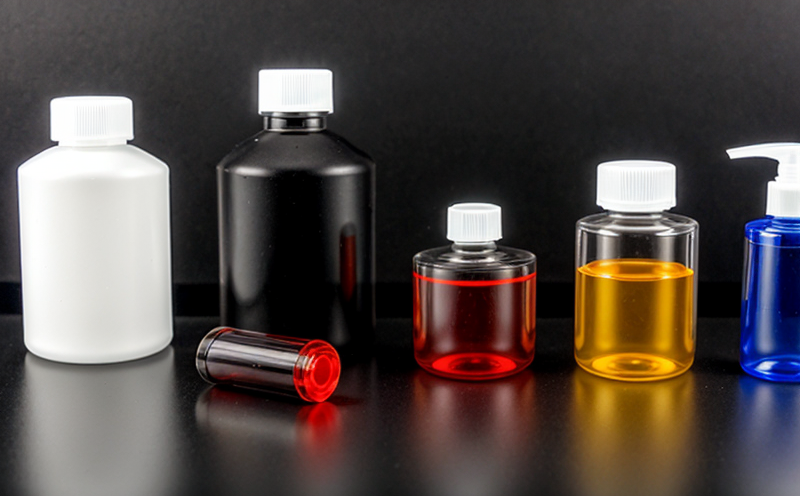ASTM D5338 Biodegradation Testing of Plastics Containing Nanoparticles
The testing of plastics containing nanoparticles is a critical step in ensuring that products are environmentally responsible and sustainable. ASTM D5338, titled "Standard Test Method for Determining the Biodegradability of Plastic Materials Using the Sealed Bag Method," provides a standardized approach to assessing the biodegradation potential of such materials.
This test method is essential for manufacturers looking to demonstrate that their products can decompose in natural environments without leaving harmful residues. By conducting ASTM D5338 testing, companies can meet regulatory requirements and build consumer trust by showcasing their commitment to sustainability.
The process involves placing samples of the plastic material into sealed bags along with microorganisms and nutrients under controlled conditions. The bags are then incubated for a specified period. At regular intervals, the contents are analyzed to determine how much of the original mass has been converted into carbon dioxide or biomass. This conversion indicates that the material is biodegrading.
The test not only evaluates the overall biodegradability but also helps identify any potential adverse effects on microorganisms during decomposition. Understanding these dynamics is crucial for developing environmentally friendly products. It ensures that additives like nanoparticles do not inhibit the natural degradation process or introduce harmful compounds into the environment.
For instance, nanomaterials such as carbon nanotubes or silver nanoparticles are increasingly being incorporated into plastics to enhance properties like strength, conductivity, and antimicrobial efficacy. However, their presence can complicate biodegradation processes if they interfere with microbial activity or release toxic substances during degradation. ASTM D5338 testing helps uncover these issues early in the product development lifecycle.
Given the complexity of nanomaterials, it is vital to choose a laboratory that specializes in both nano-additives and biodegradability assessments. Our facility offers comprehensive services tailored to meet your specific needs. We employ experienced technicians who understand the nuances of working with nanoscale materials while ensuring rigorous adherence to ASTM D5338 standards.
Our approach begins with meticulous sample preparation, which includes grinding the plastic samples into fine particles if necessary. This ensures that all parts of the material are exposed to the biodegradation process uniformly. Once prepared, the samples undergo thorough characterization using advanced techniques such as Transmission Electron Microscopy (TEM) and Fourier Transform Infrared Spectroscopy (FTIR).
Following ASTM D5338 protocols, our lab conducts rigorous testing in sealed bags containing appropriate microbial strains and nutrients. Throughout the incubation period, we monitor changes in weight and composition using sophisticated analytical equipment such as Gas Chromatography-Mass Spectrometry (GC-MS) to track carbon dioxide production.
The results of these tests are meticulously documented and analyzed by our team of experts who provide detailed reports highlighting key findings. These insights help guide further research or modifications needed to improve the biodegradability of nanocomposite plastics while maintaining their desired functional properties.
By leveraging ASTM D5338 testing, businesses can ensure compliance with international regulations regarding environmentally friendly packaging and materials. Additionally, this testing contributes significantly towards developing sustainable products that contribute positively to waste management efforts globally.
Applied Standards
- ASTM D5338-10: Standard Test Method for Determining the Biodegradability of Plastic Materials Using the Sealed Bag Method.
- EN 17033:2016: Specification for Plastics - Determination of Biodegradable Properties by Means of the Sealed Bag Incubation Procedure.
- ISO 8942-1: Plastic Materials - Determination of Biodegradation in Soil Using a Sealed Bag Procedure.
These standards provide robust frameworks for evaluating biodegradability, ensuring consistency and reliability across different testing environments. Compliance with these guidelines is crucial for accurate assessment of nanocomposites' environmental impact.
International Acceptance and Recognition
- Australia: ASTM D5338 has been widely accepted by Australian authorities who recognize its relevance in assessing biodegradable materials.
- European Union: The EU has incorporated similar testing methods into its directives promoting sustainable packaging solutions.
- United States: Both federal and state agencies often reference ASTM standards when enforcing environmental policies related to plastics.
- India: Recognizing the importance of biodegradable polymers, Indian standards bodies have adopted protocols similar to those outlined in ASTM D5338 for compliance assessments.
The international acceptance of ASTM D5338 underscores its significance not only within individual countries but also as a global benchmark. This widespread endorsement ensures that the results obtained from this testing method are universally applicable and credible.
Use Cases and Application Examples
| Use Case | Description |
|---|---|
| Nanocomposites in Packaging | The incorporation of nanoparticles into packaging materials can enhance barrier properties, reduce weight, and extend shelf life. ASTM D5338 testing ensures these benefits are achieved sustainably without compromising biodegradability. |
| Medical Devices | Nanoparticles have found applications in medical devices where they contribute to improved performance or reduced size. Biodegradation studies help ensure that these devices decompose safely once discarded, minimizing environmental impact. |
| Sporting Equipment | Polymer-based sports equipment often incorporates nanomaterials for increased durability and resistance to wear. Testing ensures that these materials do not hinder biodegradation processes even after extended use. |
| Consumer Electronics | The electronics industry seeks ways to minimize waste through the development of easily recyclable or biodegradable components. ASTM D5338 testing plays a crucial role in validating such innovations. |
The examples above illustrate how ASTM D5338 testing supports various industries by promoting sustainable practices and product lifecycle management strategies that align with broader environmental goals.





